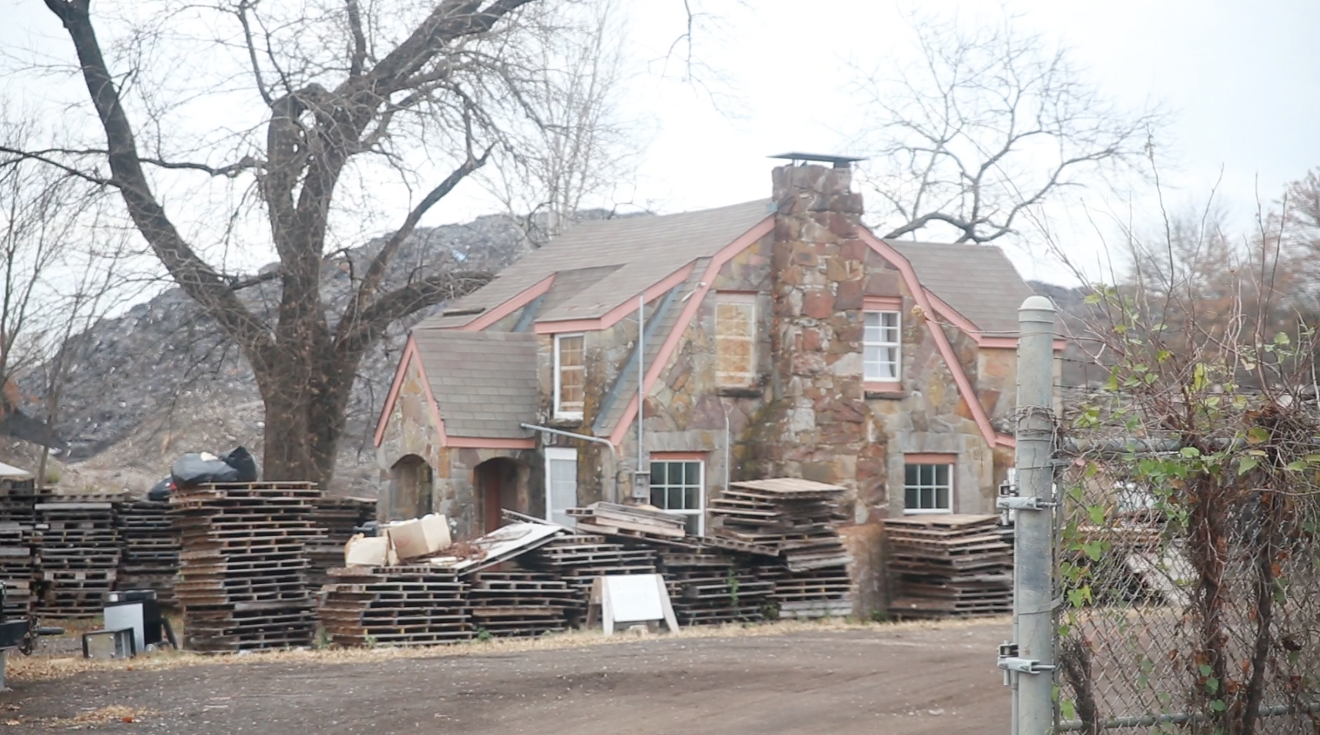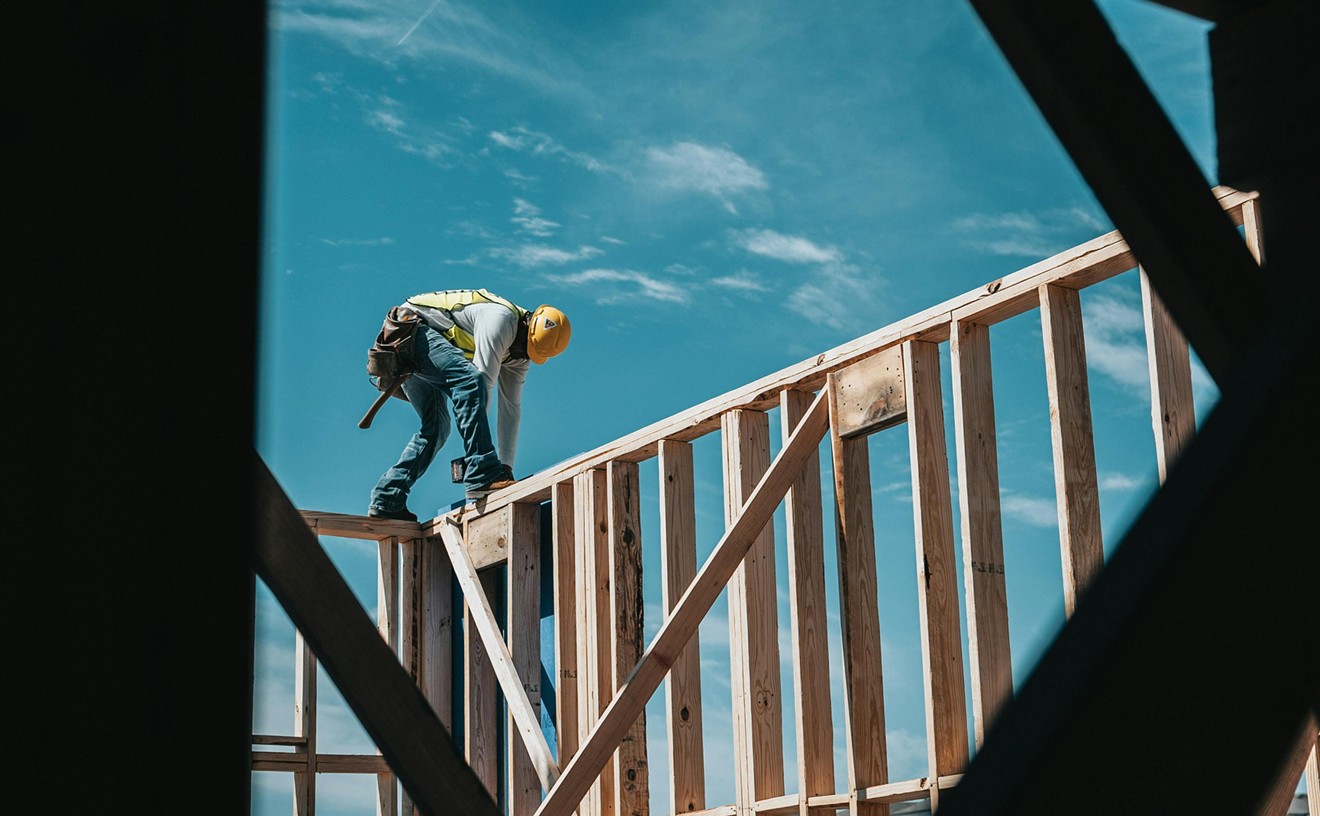Jackson bought the land where she lives largely for her daughters and their horses. Her daughters could ride their horses, and eventually, her grandchildren could ride their bikes up and down the street safely.
“It was peaceful then,” she says.
Since then, the area around her neighborhood has become more developed, and the air has become harder to breathe, she says. This is because a 60,000-100,000 ton pile of discarded shingles, appropriately called shingle mountain, sits next to her house. Dust from the shingles often blows through the air and into the lungs of Jackson and the rest of the neighborhood’s residents.
When it rains, the dust settles, but it doesn't rain that much.
The problem began in January 2018 when Chris Ganter and his Blue Star Recycling bought the land for a place to grind and pile discarded shingles. The company told Jackson and other nearby residents it was going to be the perfect neighbor, but soon the mountain rose just 50 feet away from her bedroom window. In February that year, she called the city's 311 help-line to complain anonymously, but the mountain only grew taller.
She tried calling City Council member Tennell Atkins, but didn’t hear back. The city cited Blue Star, and the company temporarily moved to another part of the property, but in July 2018, the mountain stood taller than ever.
It wasn’t until December, one day after Dallas Morning News published the first of a series of columns about shingle mountain by Robert Wilonsky, that the city filed a lawsuit against Blue Star.
At the start of the project, Ganter said only 260 tons of combustible material would be kept on the site off South Central Expressway. By the time the lawsuit was filed, more than 47,000 tons of raw shingles and 7,000 tons of ground shingles were there, according to the DMN.
The landowner, CCR Equity Holdings, offered to move the mountain, but the city then didn’t want to foot the bill for millions of dollars in dumping fees.
In early 2019, Jackson says she and a neighbor began coughing up black phlegm. Jackson says her throat burns, and talking is sometimes difficult. Around this time she realized that she was developing rashes. She suspects they were caused by fiberglass from the dumping site. Regardless of the heat, Jackson and her family always wear long-sleeved shirts around their neighborhood to prevent the rashes.
A couple of months later, a Dallas judge gave Blue Star 90 days to get rid of the mountain, but the time elapsed with no action. By the end of the year, the judge held the shingle recycling company and CCR Equity Holdings in contempt of court. The two companies were meant to pay $1,000 for each of the 90 days.The biggest obstacle in fixing this is finding the political will from city officials to make a change.
tweet this
Jackson says the fees have not been paid. She filed a federal lawsuit against Blue Star and the landowner, which she recently amended to include the city of Dallas. She says the city’s lack of action makes it complicit.
There wasn’t any funding allocated to help clean up shingle mountain in the city manager’s proposed budget for the next fiscal year, but Dallas residents came out in droves to participate in budget town hall meetings and protests outside city officials’ homes.
Since then, the city manager has said he’s found money in the budget to pay for the mountain’s removal. In a statement on Aug. 13, Atkins said the current estimate for the cleanup is $2.1 million if the city and state wave the tipping fees for disposal at the landfill.
The money is coming from the sanitation department fund balance, according to the city manager’s office, and the property owner will have to chip in as well. But Jackson isn’t holding her breath. She’s been told time and time again that the mess would be cleaned up, but it’s still there.
On Thursday, Councilman Omar Narvaez, chair of the council's Environmental and Sustainability Committee, announced that the city posted a request for bids from contractors to remove shingle mountain. Whichever contractor is selected will work with an environmental consultant to remove the shingles and other unpermitted debris from the property next to Jackson's home. The bids are due at 2 p.m. Sept. 24. Narvaez said the city has contracted with an environmental consultant to provide technical oversight on air monitoring and stormwater protections.
Evelyn Mayo, the chair of the board of Downwinders at Risk, a local grassroots environmental group, has fought alongside Jackson these last few years. Mayo was doing work in Joppa, another underserved community in southern Dallas, trying to fend off two concrete batch plants when she heard about shingle mountain.
Mayo says Jackson’s story is not uncommon. She says in Dallas's southern sector, land zoned for industrial use is plentiful and oftentimes near residential areas. The biggest obstacle in fixing this is finding the political will from city officials to make a change.
Since her fight began, Jackson helped organize Southern Sector Rising, a nonprofit, to address systemic racism in Dallas’ zoning practices. One of the organization’s five goals is to get rid of shingle mountain.
Now, Jackson is waiting for her day in court with the recycling company and the landowner, and for the city to respond to her federal complaint.
"I just wish that [Dallas city officials] will take some kind of remorse in their hearts to clean this stuff up," Jackson says. "Take a little effort to worry about the citizens."












